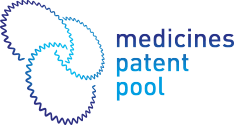Convening the community to eliminate hepatitis
30 October 2017
By Raquel Peck, CEO of World Hepatitis Alliance.
For many years, our community has felt consistently under-prioritised and largely neglected at a global level, despite the huge morbidity and mortality that we suffer. The advent of a cure for hepatitis C changed everything. These drugs made the talk of elimination possible and brought new hope for millions of people, myself included. Yet, despite the fact that very effective interventions now exist to stop us dying, 700,000 lives are lost every year from hepatitis C related complications such as liver cancer and cirrhosis and of the 71 million people living with the illness worldwide, only 1.6 million are receiving life-saving treatment.
Across the globe access to hepatitis C treatment remains woefully low. This is largely because the new medicines were introduced at extremely high prices. Thanks to the introduction of generic drugs and the implementation of innovative initiatives such as the Medicine Patent Pool’s licensing agreements, hepatitis C medicines are becoming more affordable in low- and middle-income countries but still remain out of reach for so many. Similarly, in many high-income countries and those middle-income countries that do not have access to generic formulations and who fall outside of license agreements, treatment remains largely unaffordable. This leads to delays in integrating treatment into health systems, to rationing and for a lot of patients, many of them already marginalised in one way or another, being left behind.
Furthermore, with the annual number of new infections surpassing the number of people treated and cured, we need to do more than simply scale-up treatment rates in order to eliminate hepatitis C. Improved prevention measures such as blood screening, safe injections and harm reduction are essential to strengthen infection control while greater efforts to diagnose people is needed to ensure we find the 57 million people unknowingly living with hepatitis C. Finding these missing millions will consequently drive down drug prices as more people are empowered to demand treatment and action towards elimination.
The World Hepatitis Summit (WHS) is an unprecedented opportunity to make this happen. A joint initiative from the World Hepatitis Alliance and the World Health Organization, the World Hepatitis Summit is the only global event which brings policymakers, civil society, public health experts and other key stakeholders together as partners in an effort to eliminate viral hepatitis.
Attracting over 850 delegates from 109 countries, the theme of WHS2017 is “Implementing the Global Health Sector Strategy on hepatitis (GHSS): towards elimination of hepatitis as a public health threat” and the event’s programme follows the guiding framework set out in the GHSS, adopted at the World Health Assembly in 2016 when 194 countries committed to the goal of eliminating hepatitis by 2030.
As well as sessions addressing essential areas such as surveillance, prevention and financing, the WHS2017 programme will provide expert-led discussions and furnish opportunities to share learnings on access issues including intellectual property, licensing agreements, procurement mechanisms and advocating for access. We are delighted to have esteemed speakers from the Medicines Patent Pool sharing expert knowledge in these sessions as well as joining us for our exclusive WHA member only event taking place in the two days that precede the Summit. The aim of such gathering is to build the capacity of our 200+ member organisations and strengthen the patient voice.
By convening these voices, from government representatives and public health experts to civil society and patient representatives, we will ensure that hepatitis is given the attention it has been lacking for so long and together we will achieve elimination.










